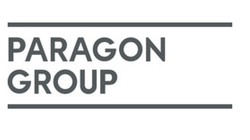Paragon Interface redefines workspace planning for the office of the future
| Paragon Interface redefines workspace planning for the office of the future_approved.docx | 26.66 KB | Download | |
| Paragon Interface Senior Associate Kirsty Schoombie.jpg | 10.12 MB | Download | |
| The ‘hybrid office’ is defined as the ideal compromise between remote working and being office-bound..jpg | 2.94 MB | Download | |
| Workspaces must address remote working and entice people back into the office..jpg | 15.64 MB | Download |
This will allow for interaction with fellow colleagues and bolster corporate culture, especially with larger companies. “Yes, there is an associated cost-saving with having your staff work remotely,” acknowledges Schoombie. However, the phenomenon dubbed as ‘Zoom fatigue’, which refers to the increased cognitive demands posed by constant tele-conferencing, indicates that workers would prefer some level of human interaction as the world slowly recovers from the pandemic.
This will also give interior architecture companies like Paragon Interface the opportunity to ‘reimagine’ the office of the future. “With social distancing, sanitising and mask-wearing likely to be with us for the foreseeable future, it is important for workspace planning to take this into account,” highlights Schoombie. This can easily be done by reducing the number of work stations and placing them further apart, while also increasing the number of couches for social seating, for example.
Wider corridors and doorways and additional partitioning will become more common, while even office furniture is likely to evolve in terms of fabrics and advances such as foldaway desks. Other features include no-touch doors, increased use of stairs to reduce crowding in elevators, and the use of materials such as silver and copper in surface finishes due to their antimicrobial properties.
Management consultant McKinsey highlights four steps to redefine workspaces post Covid-19: Optimising basic processes so that remote work is as uninterrupted and as effective as possible; redefining work roles in terms of ‘fully remote’ and ‘hybrid remote’; redesigning the workspace to foster safe collaboration; and optimising the office footprint accordingly.
Schoombie points out that the latter does not necessarily mean reducing the physical size of an office building per se, but rather using interior design to improve space utilisation and planning. Traditional layouts will have to be reconsidered, with the addition of Perspex screening now a regulatory requirement. This is likely to result in a more modular approach to workspace design. Another area likely to change significantly post Covid-19 is the office canteen or cafeteria.
“With so much time now being spent working from home, it is going to become increasingly important for people to ensure that their ‘home offices’ are comfortable and practical. This is essential for both personal well-being and productivity,” concludes Schoombie.
Ends
Connect with Paragon on Social Media to receive the company’s latest news
Facebook: https://www.facebook.com/ParagonGroupZA
Pinterest: https://za.pinterest.com/ParagonGroupZA
LinkedIn: http://bit.ly/ParagonGroupLinkedIn
Instagram: paragongroupza
Notes to the Editor
To download hi-res images for this release, please visit http://media.ngage.co.za and click the Paragon link to view the company’s press office.
About Paragon
Paragon, established in October 1997, is an internationally-active design business, based in Johannesburg. We deliver commercial architecture, masterplanning, interior design, and space planning to visionary clients in all property sectors, from retail to residential and education.
We are committed to global urban development. We are able and agile. Paragon is flexible and diverse in its approach to design. Each project is unique and not driven by style, but by lifestyle and a response to user needs. Elegant and efficient planning form the core of our designs. We understand the needs of our clients, and know how to generate ever new architectural forms in a competitive property market.
We are known for hands-on engagement with all opportunities present in the modern global building industry. The true measure of our skill is our ability to engage at all levels and with all players that make up the colourful world of construction and property development. Our buildings look forward. We embrace the future, because we will be a part of it – part of its problems and responsibilities, and part of its great freedoms and achievements.
Paragon Contact
Cindy Faux
Director
Phone: (011) 482 3781
Email: cindyf [at] paragon [dot] co [dot] za
Web: www.paragon.co.za
Media Contact
Emma Anderson
NGAGE Public Relations
Phone: (011) 867 7763
Fax: 086 512 3352
Cell: 078 028 3553
Email: emma [at] ngage [dot] co [dot] za
Web: www.ngage.co.za
Browse the NGAGE Media Zone for more client press releases and photographs at http://media.ngage.co.za

